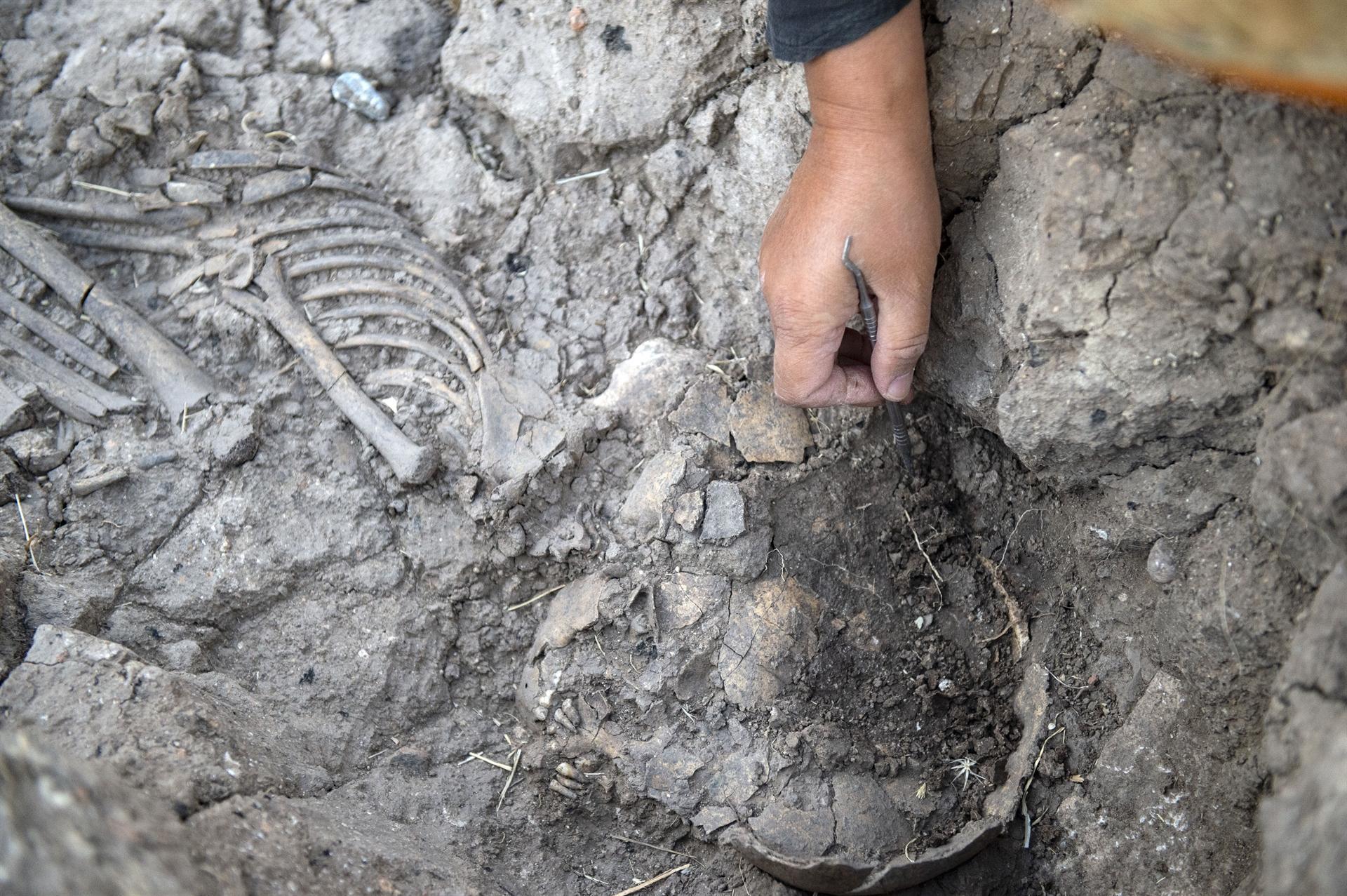
The skeleton of a child found in ongoing archaeological excavations in Tozkoparan Mound, a first-degree archaeological site in the Pertek district of the eastern province of Tunceli, is now preserved in the city’s newly opened museum.
The excavation has been initiated because the mound, which is located in Tozkoparan village of the district and considered to have traces of thousands of years of history, remained in the village settlement area and has been damaged by the houses built on it.
Academics from various universities are working at the excavations, carried out under the leadership of the Tunceli Museum. A team of about 15 people, consisting of anthropologists, archaeologists, art historians and intern students, take part in the excavations. For the first time since 1968, scientific methods are now used in the excavations.
While working in the field, the team has recently discovered a skeleton, thought to belong to a child. The skeleton pieces, which were removed from its place with the help of a brush and spatula, were taken under protection at Tunceli Museum.
In addition to terracotta potteries obsidians, bones, stone tools and arrowheads were also found during the excavations. Artifacts that shed light on history will be exhibited in the museum.
Speaking to the state-run Anadolu Agency, Düzce University Archeology Department academic Yasemin Yılmaz said that they have been conducting surveys in Tunceli for about six years and have identified all archaeological periods in the city starting from the Lower Paleolithic period.
Stating that they completed the survey this year, Yılmaz said that they carry out excavations in Tozkoparan Mound with a delegation under the supervision of academics from universities in Tunceli, Düzce, Erzurum and Diyarbakır.
Yılmaz noted that they carry out work in the areas where the mound was destroyed.
“Here we are working to determine the boundaries of the archaeological sites. Archaeological remains began to be found just below the surface soil. On the third day of the excavation, a human skeleton was unearthed. It belongs to an individual who appears to be a child. It was lying in an oval-shaped pit, excavated in the north and south directions. This skeleton is very important because it belongs to the ancient society and provides direct information about that period,” Yılmaz said.
Yılmaz stated that there have been interdisciplinary studies on skeletons recently, adding, “We can determine the age of the skeletons and their nutritional system. If the diseases they suffered left traces on the bones, we can determine them. We cannot obtain much data with a single sample, but it is a pleasing finding to begin with.”
Yılmaz stated that they have completed the archaeological chronology of the city during their surveys, and added, “As of this year, we completed our surveys because we have achieved all our goals. Tunceli is located on the transit route of many civilizations. Our findings also confirmed this. We started to prepare our findings for publication.”
Yılmaz stated that with the publication of their scientific articles, the city will attract the attention of history and archeology enthusiasts.
The head of the excavations and Tunceli museum director, Kenan Öncel, also emphasized that with the opening of the museum in the city, archaeological work gained momentum.
In this context, Öncel stated that they started the first salvage excavations in Tozkoparan Mound.
“We plan to work in the field for about one more month. Our aim is to determine the extent and boundaries of the mound. Tunceli Museum is currently the newest museum in Turkey. Our artifacts found in this rescue excavation will enrich the collection of the Tunceli Museum and will also contribute to understand the cultural background of the city,” he said.